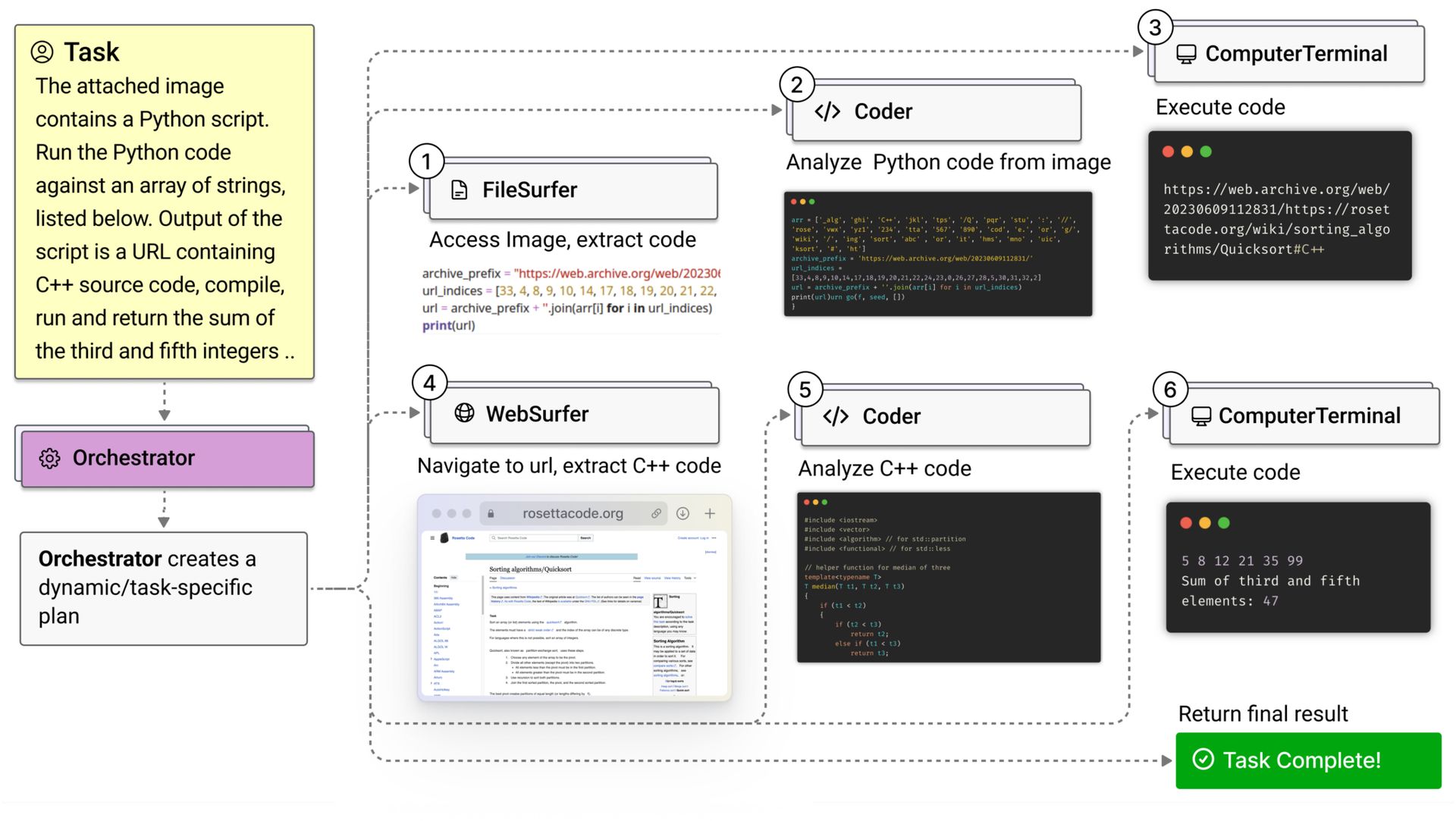Microsoft has introduced a new multi-agent artificial intelligence (AI) system called Magentic-One, designed to complete complex tasks using multiple specialized agents. Available as an open-source tool on Microsoft AutoGen, this system aims to assist developers and researchers in creating applications that can autonomously manage multi-step tasks across various domains.
What is Magentic-One?
Magentic-One is a generalist multi-agent system that uses an orchestrator to coordinate different agents, each specializing in a particular task. The lead agent, called the Orchestrator, works alongside four specialized agents:
- WebSurfer agent: Handles web browsing, clicks, and web content summarization.
- FileSurfer agent: Manages local files, directories, and folders.
- Coder agent: Writes and executes code, analyzes information, and creates new projects.
- ComputerTerminal agent: Provides a console for program execution by the Coder Agent.
These agents work together to solve open-ended tasks, making Magentic-One suitable for applications like software engineering, data analysis, and scientific research. Microsoft describes Magentic-One as a “flexible and scalable alternative to single-agent systems” due to its modular design, which allows agents to be added or removed without affecting the system’s core structure.

Key features
Magentic-One stands out because of its ability to activate multiple agents using a single language model. The system can perform various tasks, from navigating web browsers to executing Python code. This functionality means it can handle real-world scenarios such as booking tickets, purchasing products, or editing documents on a local device.
The modular multi-agent architecture ensures that each agent has a distinct responsibility, resulting in higher efficiency for complex, multi-step tasks. This approach enables Magentic-One to divide a problem into subtasks, improving both accuracy and speed of task completion. For example, if the system is asked to book a movie ticket, each agent will handle a different part of the task, such as processing visual information, navigating the website, and completing the transaction.
Microsoft’s AutoGen framework powers Magentic-One, supporting integration with various large and small language models to meet different cost and performance requirements. Currently, the system is tested with models like GPT-4o and OpenAI’s o1-preview, though it remains model-agnostic, allowing for future flexibility.
To assess the effectiveness of Magentic-One, Microsoft has also released AutoGenBench, a tool that evaluates agentic performance on several benchmarks such as GAIA, AssistantBench, and WebArena. These benchmarks focus on tasks like multi-step planning and tool usage. Microsoft’s initial tests from October 2024 indicate that Magentic-One delivers competitive results against state-of-the-art methods.
Video: Microsoft
The growing trend: Multi-agent systems
Magentic-One is part of a growing trend towards multi-agent AI systems. OpenAI has introduced Swarm, another framework aimed at building and deploying multi-agent systems. Similarly, IBM launched the Bee Agent Framework, an open-source toolkit that supports deploying agent-based workflows, compatible with models like IBM Granite and Llama 3.2. These systems, much like Magentic-One, aim to offer scalable solutions to complex problem-solving tasks.
According to Microsoft, “Magentic-One’s plug-and-play design supports easy adaptation and extensibility by enabling agents to be added or removed without altering other agents or the overall architecture.” This flexibility is particularly important for evolving business needs and new applications, making Magentic-One a promising tool for researchers and developers seeking to create more adaptive AI systems.
Featured image credit: Kerem Gülen/Ideogram





